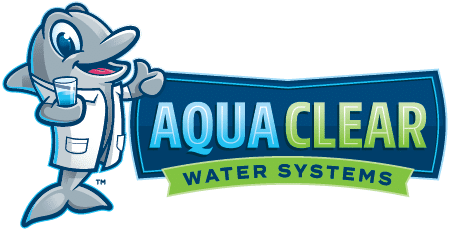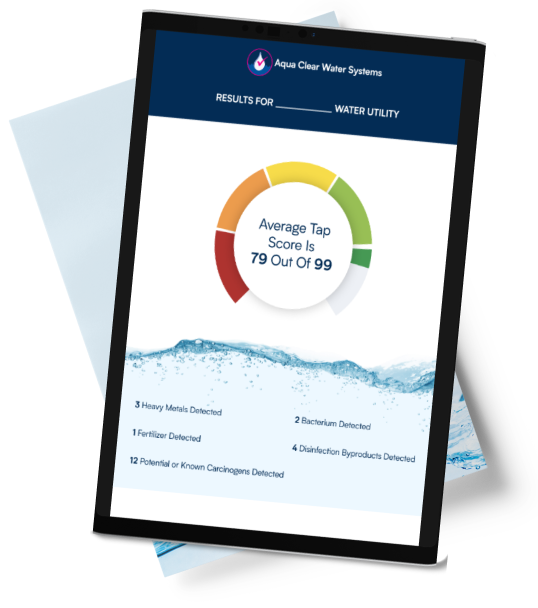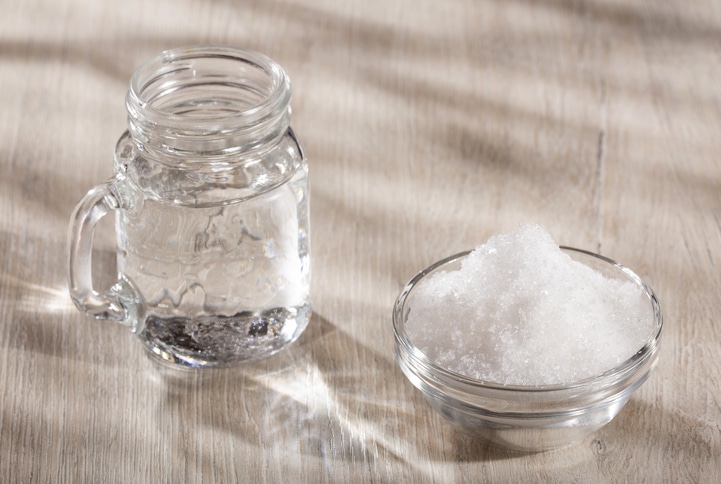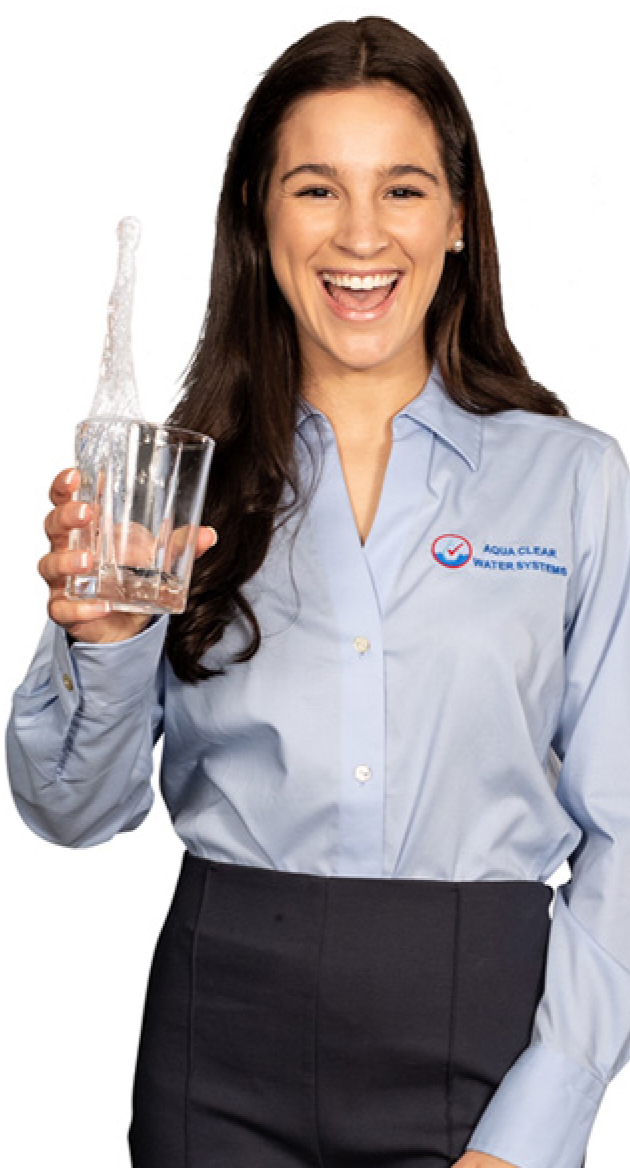Dogs need a constant supply of fresh drinking water to keep them hydrated and keep them at optimum health. With increasing discussion around the safety and cleanliness of tap water for humans to drink, it is only natural to wonder ‘is it ok for dogs to drink tap water?’
Just like for us humans, the quality of the water they drink matters to dogs and it can have a significant impact on their health. This article will weigh up the safety of tap water for your canine friends, and consider some of the alternative options on the market, as well as some steps you might take to keep your tap water as safe as possible.
Is it OK for Dogs to Drink Tap Water?
Most of the time, tap water is safe for dogs to drink if it is in an area where safety regulations are strictly enforced and water quality is high.
For peak safety, tap water should have been decontaminated and disinfection prior to consumption, but this process of treatment does leave a number of common elements in the water.
Chlorine or chloramine are added to kill microbes in water; fluoride is added in many areas to reduce the incidence of dental cavities for humans; and minerals such as calcium and magnesium may occur naturally in the water at the source.
It is a good idea to stay on top of information about water quality in your area, so that you can make informed and safe choices for your dog. The best way to do this is by reaching out to your local water authority for a water quality report.
These are often available online, though it is important to remember that they only state the safety of water as it leaves the treatment plant. It is possible that other contaminants may enter the water between the treatment plant and your home.
If you are concerned, at-home testing kits are available for purchase so that you can be sure of the water quality in your home.
Is Tap Water Bad for Dogs?
Tap water is usually safe for dogs, but there are possible risks for some dogs.
Chlorine and chloramine are added to disinfect drinking water, but for some dogs and puppies these can cause mild gastrointestinal issues. Look out for otherwise unexplained sickness and diarrhea and consult a vet if you are concerned.
Older plumbing systems can leach heavy metals such as lead into drinking water. Prolonged heavy metal exposure can lead to kidney damage or even neurological problems.
Local pesticide usage and industrial runoff may introduce toxins to drinking water that are harmful to dogs and can build up in their bodies over time, causing significant damage.
Micro-organisms that are harmful to dogs may bypass human-quality water treatment.
Many cities add fluoride to drinking water as it helps to reduce dental cavities in humans. In excessive amounts however, fluoride can be toxic to dogs and puppies. Over time, it can cause dental problems and skeletal damage.
The risk of overexposure is dependent on your dog’s breed, size and the amount of fluoride in your tap water. Red flags to consider are excessive drooling, vomiting and diarrhea.
Tap Water Filtration Solutions
Whole Home Reverse Osmosis Systems
Reverse osmosis systems force water through a semipermeable membrane, which separates pure drinking water from the substances you’d rather stayed out of the water supply. These systems can remove a range of contaminants and impurities, including heavy metals, chemicals and bacteria, improving the safety and the taste of tap water for your dog. This makes it an ideal option for picky pets who like to be choosy about their drinking water!
Reverse osmosis filtered water can have health benefits for your pet too. You may notice an improvement in their coat, skin, digestive health and general wellbeing. You may also notice a reduction in ailments linked to water quality, such as urinary tract infections.
Installing a system like this can be a large investment purchase, but it will bring immense peace of mind around your dog’s water consumption and your own sustainability. Improved tap water at home will reduce your need for bottled water, reducing single-use plastic consumption and cost outlay.
Activated Carbon Water Filters
These filters are increasingly common, found in pitchers, water bottles, refrigerators and faucets. They use processed carbon to filter drinking water, effectively removing chlorine, sediment and heavy metals as well as reducing unwanted odors and flavors.
These filters may be a good option if your dog has a sensitive stomach or has allergies, although their smaller scale means these filters are not as efficient as whole-home systems. They also require frequent upkeep and replacement to keep them working at the peak level for removing impurities.
UV Treatment
Ultraviolet treatment is often used by homeowners with a private well water supply. UV light effectively neutralizes harmful microbes, making the water safer to drink. However, it does not remove fluoride, heavy metals, or other chemical contaminants, which may still be present at levels unsuitable for some dogs and puppies.
Can Dogs Drink Bottled or Distilled Water?
Bottled water is generally safe for dogs, and it may be a better option for them than tap water that is of low quality. However, it is important to take some considerations into account.
Plastic bottles, especially if they are exposed to heat, may release bisphenol-A (BPA) into drinking water. Over prolonged periods of exposure, this can be harmful to your dog so if bottled water is your best option, then opt for BPA-free or glass bottles to mitigate this risk.
Some brands of bottled mineral water have an increased level of sodium. While this is an essential electrolyte for dogs, it’s important that this remains in controlled amounts. A healthy dog with a typical water intake would be unlikely to suffer ill-effects from bottled water with a slightly raised level of sodium. By contrast, a dog with existing health conditions (for example, heart disease, high blood pressure or kidney disease) may be at risk of complications if they begin to consume more sodium on a regular basis.
It’s also important to weigh up the cost and inconvenience of constantly buying bottled water for your dog, not to mention the environmental impact of all that single-use plastic! Scientific research does not point to significant health benefits of bottled water over tap water in most cases.
You may be wondering about distilled water as another alternative for your dog. Distilled water has almost all impurities and toxins removed by its treatment process, making the water incredibly pure. It is the perfect choice if your dog is in need of a detox after consuming sub-par tap water.
However, in removing the impurities, distillation also removes the essential minerals such as magnesium and calcium. These are as important for dogs as they are for us humans. Distilled water should not be your dog’s only source of hydration, as prolonged deficiency in these minerals can have significant health implications.
The Impact of Pure Water on a Dog
Having a constant supply of fresh, clean water to drink is a critical part of keeping your dog healthy. Hydration contributes to overall health in a big way: carrying nutrients around the body, supporting the digestive system, and regulating body temperature throughout the year, but especially in the summertime.
Drinking unclean water can cause significant health issues for dogs and puppies. It can even be fatal in severe cases, so it is vitally important to secure a source of pure drinking water that you can trust.
This is where Aqua Clear Water Systems can help. We have years of experience in this industry so are expertly placed to advise you on the best water filtration system for your home.
Our installations are always undertaken by professionals in the water purification industry. As one of the top-rated firms in Tennessee, we are ready to help you and your canine friend with top quality drinking water.







